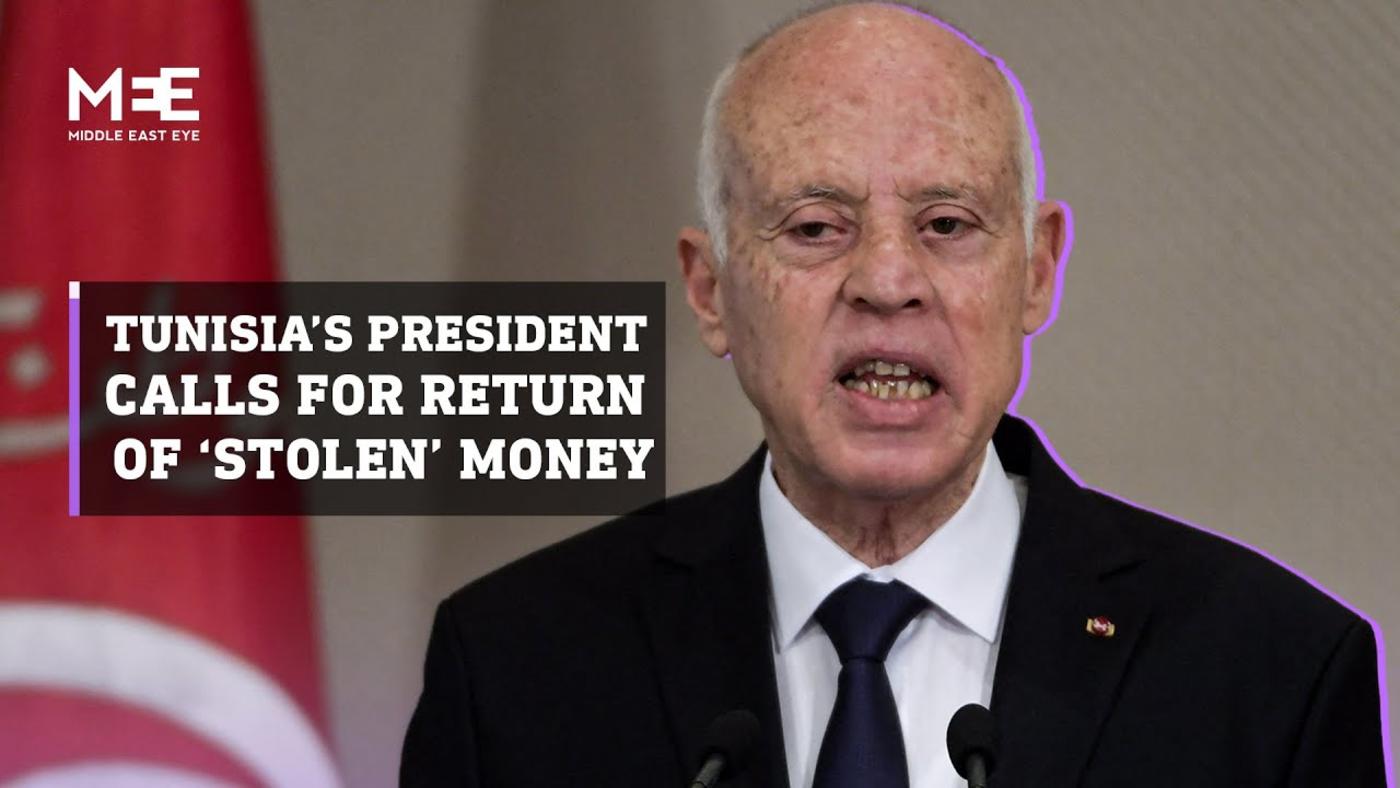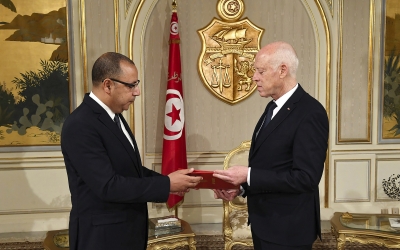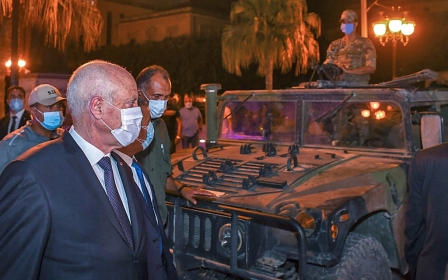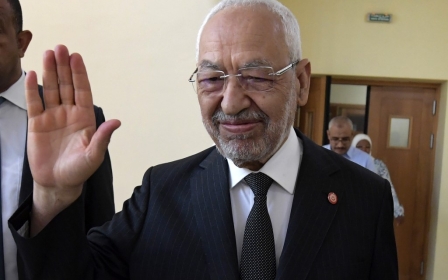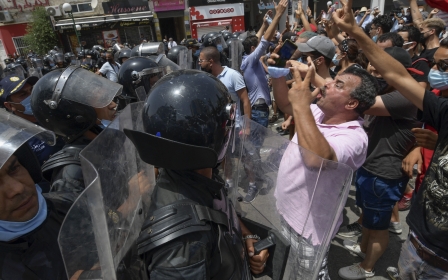Tunisia: President vows to fight corruption, retrieve stolen money
Tunisian President Kais Saied pledged late on Wednesday to crack down on corrupt businessmen and retrieve 13.5 billion dinars ($4.8b) that he said had been stolen from the people.
Denouncing the theft, Saied said that businessmen had stolen money through unpaid taxes and fraud, referencing to a list of 460 names compiled after the 2011 revolution by an anti-corruption commission.
In his speech, broadcast via Facebook live, Saied gave them a choice: they could either face prison or return the money to the country through non-profit investments, such as in hospitals, schools and infrastructure in deprived areas.
"They have robbed the people for decades and now those funds have to go back to the people," said Saied. "I call on the businessmen to opt for settlements rather than face punitive measures and prison."
Saied's promises follow his decision on Sunday to dismiss Prime Minister Hichem Mechichi, freeze parliament and assume executive powers, actions the president's opponents and constitutional lawyers have labelled a coup. Saied has also taken on the powers of the state prosecutor.
While several political parties and constitutional lawyers have opposed the power grab, Saied has argued his actions were lawful, in line with an article in the constitution that provides for crisis situations.
Tunisia has faced worsening economic and political turmoil for years, and the coronavirus pandemic has exacerbated widespread discontent.
In an interview on national radio station Mosaique.fm, Tunisian economic expert Ezzedine Saiden said Saied's "penal settlements" would have great benefits for the Tunisian economy and that an investigation into the corruption could yield much more than Saied's quoted 13.5 billion Tunisian dinars.
According to Tunisian political scientist Mohammed-Dhia Hammami, the announcement garnered praise, as the business elites are unpopular in Tunisia.
"Saied announced this because he had to make some popular decisions. Because until now there were no arrests, no serious decisions that give the impression that he’s keeping his promises. He had to do something," Hammami said.
It is not clear how Saied's "penal settlements" would be implemented. Hammami said some businessmen could try to oppose the decision, leading to "years" of court battles.
However, for Hammami, the key aspect of Saied's move is his apparent move towards reconciliation - to potentially give corrupt business elites from the Ben Ali era a second chance.
"Politically, the most important point is his readiness and his willingness to reconcile with business elites… It's quite surprising that he felt he had to go back [to] 2011 - he didn't say anything about businesses or business owners who have benefited from their connection with the political elite after 2011."
Hammami added that Saied may instead be trying to build alliances. "I don't see his move as an attack to business people. I think it's more a way to build an alliance and to clean them from their previous mistakes."
Meanwhile, the IMF has offered to help Tunisia cope with the "extraordinary socio-economic pressures" as a result of the pandemic and restore finances to a sustainable footing.
"Tunisia continues to face extraordinary socio-economic pressures, including as a result of the Covid-19 pandemic, which is causing tragic loss of life, and Tunisian's unmet aspirations for higher, job-rich and inclusive growth," a spokesperson for the agency said on Monday.
The North African nation announced in May that it was seeking a three-year $4bn loan to help stabilise its balance of payments position after its current account deficit widened to 7.1 percent of GDP last year.
Middle East Eye propose une couverture et une analyse indépendantes et incomparables du Moyen-Orient, de l’Afrique du Nord et d’autres régions du monde. Pour en savoir plus sur la reprise de ce contenu et les frais qui s’appliquent, veuillez remplir ce formulaire [en anglais]. Pour en savoir plus sur MEE, cliquez ici [en anglais].


